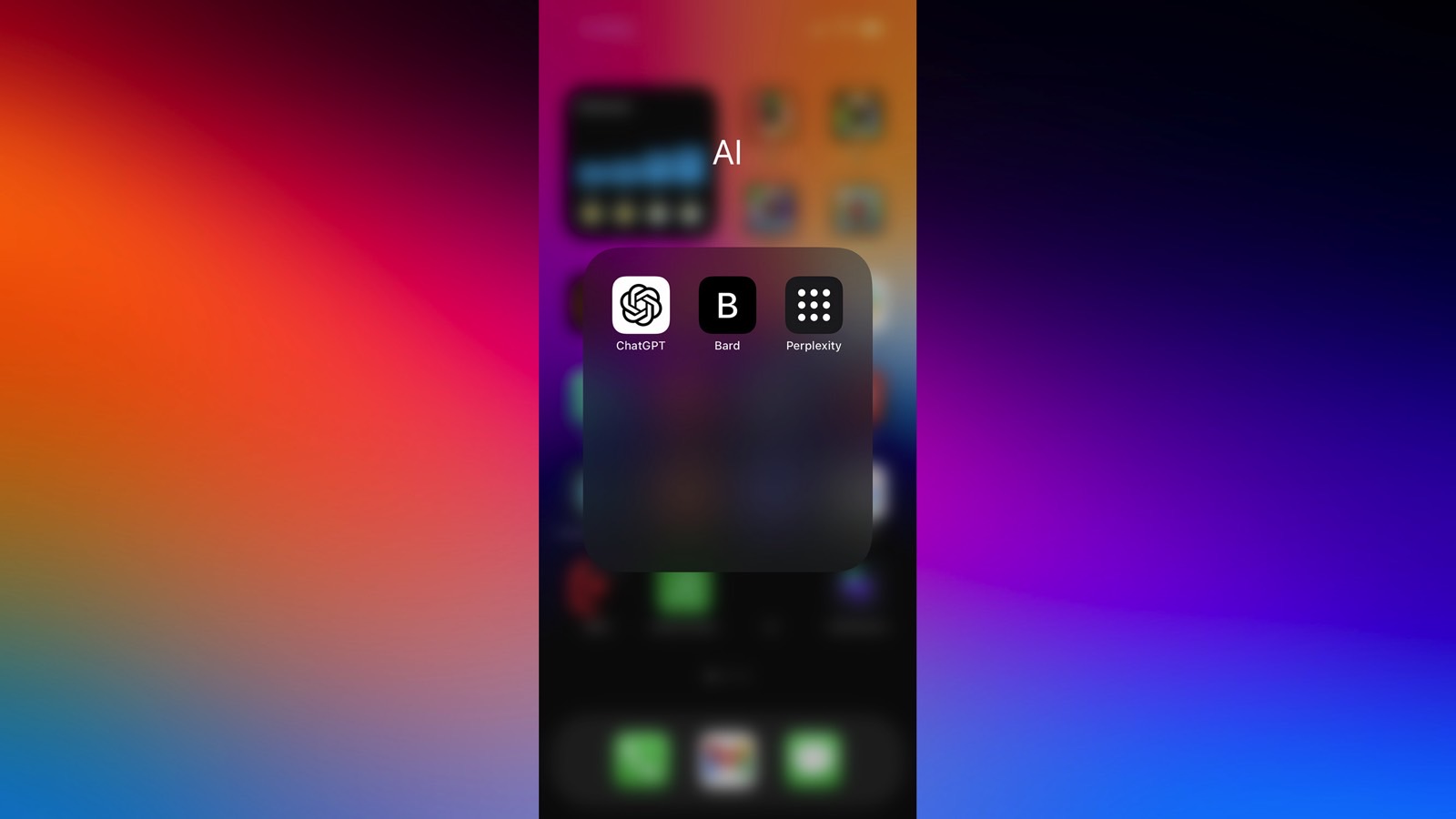Apple senior management described iOS 18 and iPadOS 18 as “ambitious and compelling,” according to Bloomberg Marco Gurman. This should be an interesting statement for any longtime iPhone and iPad users, especially considering the current scenario. Everyone in technology is focused on generative AI like ChatGPT, and Apple is no different. I recently wrote that I will upgrade to the more expensive iPhone 16 if that's how I can get access to the Apple GPT features coming to iOS 18.
Adverts
Apple is apparently aiming too high with the iOS 18 update, if a new report is accurate. iOS 18 will introduce “important new features and designs” as well as security and performance improvements. iOS 18 will have to deliver major updates next year, the report says, to compensate for the iPhone 16's hardware, which will not feature major changes.
After stating that Apple recently halted development of iOS 18 to address the growing number of bugs in the initial version of the iPhone software, Gurman detailed Apple's iOS 18 progress in his latest To connect News Bulletin.
Adverts
At the end of last month, Craig Federighi decided to freeze iOS 18 development to fix bugs and improve performance. Apple took a break after reaching a major milestone in the development of iOS 18 and macOS 15.
Apple has completed the first internal versions of upcoming releases, which include the biggest new features. It's unclear whether these features include generative AI capabilities. But Apple decided to halt development in favor of fixing the flaws:
Once Apple reaches this stage, known as M1, it usually starts working toward the next milestone, M2. In this case, the debugging pause delayed the start of M2 development by a week.
The report says that Apple's iOS 18, macOS 15, and watchOS 11 are more critical than usual. Apple is reportedly racing to catch up to OpenAI and Google as iOS 18 will bring generative AI to the iPhone. Maybe that's why the break is justified. Fixing critical bugs early in a high-risk operating system could be a key priority for Apple.

The report says that Apple goes through about four milestones with new software releases, before revealing them at WWDC in June. Each milestone lasts six weeks. Four are reserved for adding features and the following two weeks will be dedicated to fixing bugs. Apple essentially added a week of bug squashing to the last period.
The delay should not affect the overall release of iOS 18. “At worst, it will give Apple a little less time at the end of the development cycle to iron out any last-minute glitches,” the report says.
I should point out that iOS 17 was not a perfect release. Apple didn't bring any major features, but it improved the overall experience. The company is still fixing iOS 17 bugs.
Gurman reports that Apple is “taking quality as seriously as ever” with iOS 18. The delay echoes a 2019 policy that Federighi implemented; The Pact: “We will never knowingly allow regressions in construction. And when we find them, we will fix them quickly.”
In theory, Apple should stop development if bugs in a new iOS feature impact the iPhone experience. The supposed halt in development indicates that Apple is doing this or that it has not adhered to its own policies.
If iOS 18 really does deliver such a groundbreaking update, Apple should be more motivated than ever to ensure new features “just work” from the start.
Speaking of which, I'm already excited to try out the first iOS 18 beta when it launches next June. I skipped the iOS 17 beta this year, but if the next version comes with generative AI Siri features from the start, I'll want to try them out ASAP.
As always with these reports, nothing is official. And Apple will likely never comment on internal issues like stopping iOS 18 development to fix bugs. But it will certainly be interesting to see what iOS 18 looks like in the first beta. Fewer bugs and a great first experience may indirectly confirm Apple's renewed focus on fixing bugs before they impact customers.
—————-
Apple senior management described iOS 18 and iPadOS 18 as “ambitious and compelling,” according to Bloomberg Marco Gurman. This should be an interesting statement for any longtime iPhone and iPad users, especially considering the current scenario. Everyone in technology is focused on generative AI like ChatGPT, and Apple is no different. I recently wrote that I will upgrade to the more expensive iPhone 16 if that's how I can get access to the Apple GPT features coming to iOS 18.
Apple is apparently aiming too high with the iOS 18 update, if a new report is accurate. iOS 18 will introduce “important new features and designs” as well as security and performance improvements. iOS 18 will have to deliver major updates next year, the report says, to compensate for the iPhone 16's hardware, which will not feature major changes.
After stating that Apple recently halted development of iOS 18 to address the growing number of bugs in the initial version of the iPhone software, Gurman detailed Apple's iOS 18 progress in his latest To connect News Bulletin.
At the end of last month, Craig Federighi decided to freeze iOS 18 development to fix bugs and improve performance. Apple took a break after reaching a major milestone in the development of iOS 18 and macOS 15.
Apple has completed the first internal versions of upcoming releases, which include the biggest new features. It's unclear whether these features include generative AI capabilities. But Apple decided to halt development in favor of fixing the flaws:
Once Apple reaches this stage, known as M1, it usually starts working toward the next milestone, M2. In this case, the debugging pause delayed the start of M2 development by a week.
The report says that Apple's iOS 18, macOS 15, and watchOS 11 are more critical than usual. Apple is reportedly racing to catch up to OpenAI and Google as iOS 18 will bring generative AI to the iPhone. Maybe that's why the break is justified. Fixing critical bugs early in a high-risk operating system could be a key priority for Apple.

The report says that Apple goes through about four milestones with new software releases, before revealing them at WWDC in June. Each milestone lasts six weeks. Four are reserved for adding features and the following two weeks will be dedicated to fixing bugs. Apple essentially added a week of bug squashing to the last period.
The delay should not affect the overall release of iOS 18. “At worst, it will give Apple a little less time at the end of the development cycle to iron out any last-minute glitches,” the report says.
I should point out that iOS 17 was not a perfect release. Apple didn't bring any major features, but it improved the overall experience. The company is still fixing iOS 17 bugs.
Gurman reports that Apple is “taking quality as seriously as ever” with iOS 18. The delay echoes a 2019 policy that Federighi implemented; The Pact: “We will never knowingly allow regressions in construction. And when we find them, we will fix them quickly.”
In theory, Apple should stop development if bugs in a new iOS feature impact the iPhone experience. The supposed halt in development indicates that Apple is doing this or that it has not adhered to its own policies.
If iOS 18 really does deliver such a groundbreaking update, Apple should be more motivated than ever to ensure new features “just work” from the start.
Speaking of which, I'm already excited to try out the first iOS 18 beta when it launches next June. I skipped the iOS 17 beta this year, but if the next version comes with generative AI Siri features from the start, I'll want to try them out ASAP.
As always with these reports, nothing is official. And Apple will likely never comment on internal issues like stopping iOS 18 development to fix bugs. But it will certainly be interesting to see what iOS 18 looks like in the first beta. Fewer bugs and a great first experience may indirectly confirm Apple's renewed focus on fixing bugs before they impact customers.



